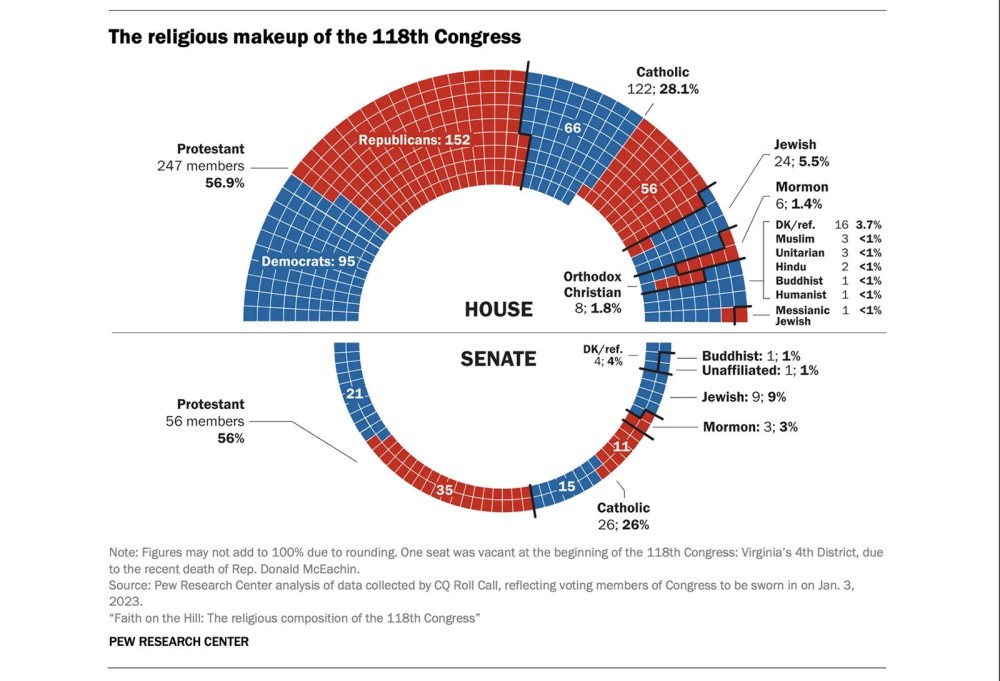New Congress has much higher percentage of Christians than US public

The religious makeup of the new Congress bucks the trends seen in American religious life, a new report finds.
The Pew Research Center says the Senate and House members are “largely untouched” by the continuing decrease in the portion of Americans who identify as Christian and the comparable increase in the share of those who say they do not have a religious affiliation.
Christians comprise 88 percent of the voting members of the 118th Congress who are expected to be sworn in this week, a number that has not changed much since the 1970s, when 91 percent of members said they were affiliated with that faith.




